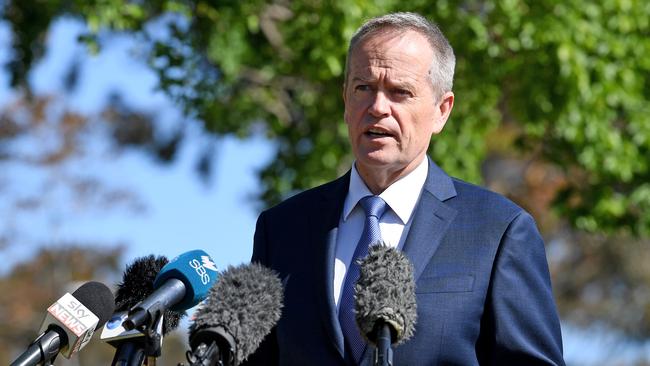
Malcolm Turnbull has bowed to the inevitable: a process short of an audit to require all MPs to declare and show they are not dual citizens.
This is the next potentially deadly stage of the dual-citizenship crisis.
Public opinion, and Bill Shorten’s switch last Friday to call for MPs’ disclosure, made the Prime Minister’s response an urgent imperative.
There could be a Turnbull-Shorten agreement on the disclosure process that is authorised by both houses of parliament, but the Labor leader has kept his options open. This exposes the risk of more by-elections early next year if MPs are referred to the High Court and found to be dual citizens — creating great uncertainty in coming months and, ultimately, a risk to the Turnbull government if more MPs are caught in the trap. The confidence both Turnbull and Shorten express in their MPs will be tested in public.
This unprecedented step brings transparency to the entire parliament. The proposal backed by cabinet is consistent with the principles Turnbull has outlined for days: no third-party auditor, no onus-of-proof reversal and putting responsibility on MPs to show and tell. He has translated those principles into a scheme.
While the Opposition Leader seeks to score maximum political capital, he says Turnbull’s proposal looks like his own and he will engage constructively “while keeping all options on the table”. Shorten said he stood by his offer to work on a bipartisan basis. He called earlier for a system of universal “disclosure” that Labor declined to define — as distinct from a third-party audit.
Turnbull has gone further and produced a tangible arrangement and resolution for both houses. While Labor may seek concessions from Turnbull, the pressures will be intense for both major parties to strike a deal and secure passage of the resolutions through parliament as soon as possible to begin to bring resolution to the dual-citizenship trauma.
The pivotal question remains unanswered: what will be the price for the government and Labor?
Turnbull’s response is sensible. After resolutions by both houses, MPs will have 21 days to provide to the registrar of members’ interests a citizenship declaration including details of the MPs’ and their parents’ birth and any renunciation of dual citizenship. In short, they must “show and tell”.
The sanction is being in breach of parliamentary privilege. The solution is devised within the parliamentary machinery and is open to public scrutiny. The same resolution will apply to subsequent parliaments so the model is intended to endure short of any referendum to change the Constitution to allow MPs to be dual citizens, an extremely unlikely event.
Turnbull wants the model approved and implemented swiftly. The 21-day timetable means all MP declarations would be “on the table” before Christmas. Any references to the High Court would come later, along with subsequent by-elections if lower house members were found to be ineligible.
Turnbull was working on this proposal last week. He wrote to Shorten yesterday seeking his support. One sticking point might arise if Shorten insisted that if any minister was referred to the High Court then that referral must require them to stand down from the ministry.
There are two problems for Turnbull: he looks as though he is responding to pressure from others and there will be a litany of critics saying the disclosure model is not sufficient. So far nobody has produced a better scheme.
Turnbull was anxious to point out his proposal was not an audit and there was no auditor. On this point, the government should not, as an executive act, create a third-party process to determine whether MPs are eligible to sit in parliament. That is not the business of any government or any party appointed by government. Any audit could be authorised only by parliament. But this is not a prospect provided the Coalition and Labor oppose an audit and it has support from only a small yet noisy bunch of MPs.



